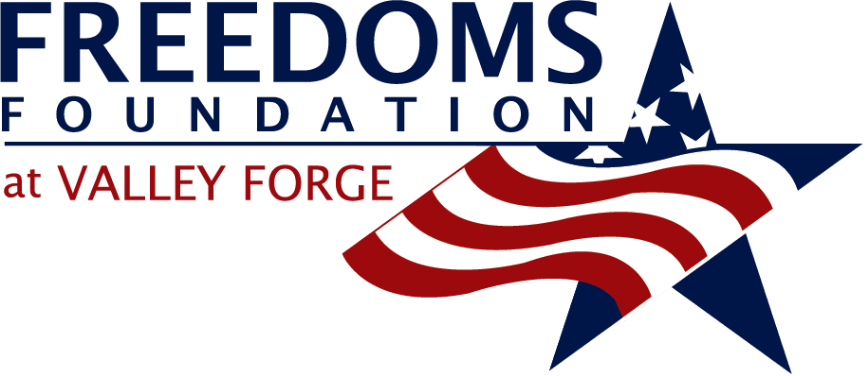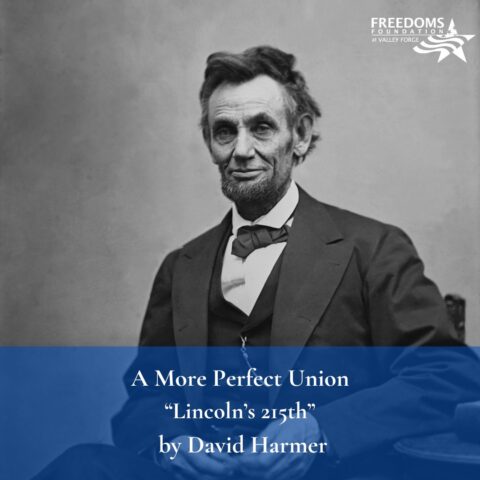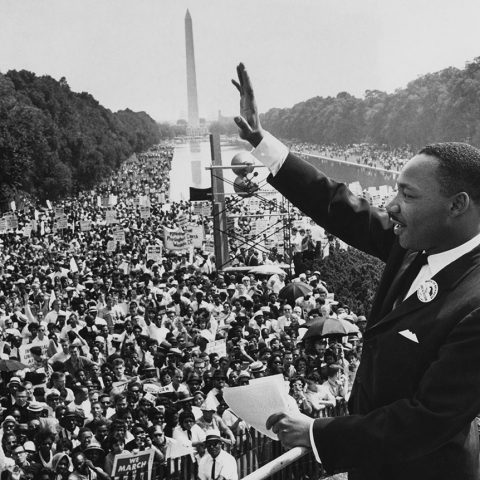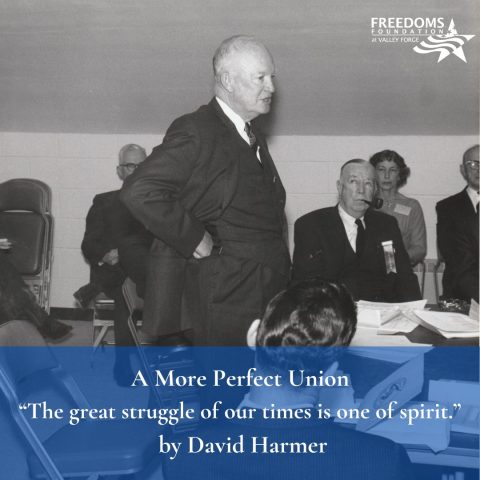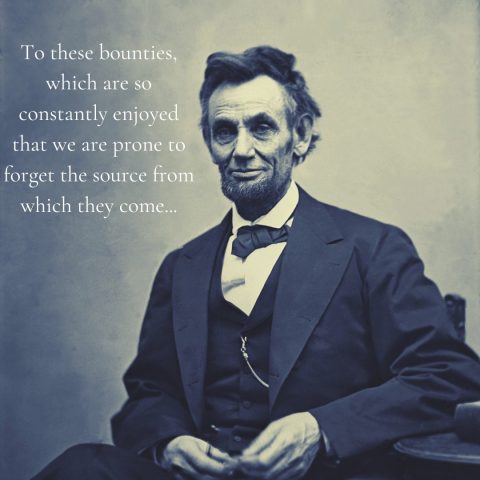Speech – The Roots of Presidential Greatness

By David Harmer
Once when they were working together in the California Capitol, my father shared with Governor Reagan a favorite quotation from Montaigne. Reagan responded by recounting details of Montaigne’s upbringing. The ensuing conversation made plain that he’d not only read about Montaigne, he’d read Montaigne, and studied his life, statesmanship, and essays.
In a cabinet meeting shortly thereafter, Governor Reagan illustrated the point in question by referring to a similar challenge faced by the Roman emperor Diocletian.
He knew the Constitution well, citing relevant provisions by article, section, and clause. He loved the Federalist Papers and cited them by number. He not only read what the Founding Fathers wrote, he read what they read. He referred to the writings of John Locke as naturally as the daily news. He conversed in depth and at length with public intellectuals like Bill Buckley and Milton Friedman, bringing to bear an expansive knowledge of economics, history, and political philosophy.
After his first governors’ conference, he said there were too many socials and not enough working sessions. Fellow governors, assuming his political success reflected only his celebrity, were flabbergasted by his proficiency on panels regarding regional problems. Reagan spoke with detailed understanding of the issues involved and advocated solutions with specificity. He’d done his homework—not just a cursory review or briefing, but deep study.
Decades later, Margaret Thatcher said:
It always fascinated me that people thought Ronnie Reagan was not a detail man. If ever he was negotiating or going on a significant visit, he would have everything at his fingertips. He was the most thorough person in preparation I ever knew. And of course, those he met were always most impressed. He knew the answers and would have a whole range of questions. President Reagan could dominate any meeting between two people.
If Reagan was so widely read and well prepared, why was he so scornfully dismissed? In Sacramento, he was caricatured as an aloof and uninformed “acting Governor.” In Washington, he was ridiculed as an “amiable dunce.” Dad shared this insight:
The only times I saw Reagan display anything other than genuine respect for another person came when he was asked to give an audience to someone with a reputation for intellectuality. I witnessed several occasions where a visitor came filled with too much belief in his own publicity. If Reagan sensed any arrogance or pomposity, he would engage in pointless banter or recite one of the hundreds of humorous stories at his command—intentionally giving the impression that he had no interest in, or ability to relate to, the profound thoughts with which the visitor wanted to impress him.
At first perplexed by this behavior, I came to see that it was an expression of Reagan’s disdain for vanity.
Reagan loathed arrogance. Once, in negotiations on an emergency exception in a proposed spending limitation, a legislative leader demanded, “Since the people haven’t been intelligent enough to vote for other needed taxes submitted to them on the ballot, what makes you think they’d be intelligent enough to vote to increase the tax limit you’re proposing?” Dad said:
It was the only occasion I can ever remember seeing Reagan speechless. He looked at his interlocutor for what seemed like several minutes without saying a word. Finally he responded, “Well, Jack, I think we just have to have faith in the ability of the people to discern what needs to be done.”
Later Reagan asked me, “Did he really say that? Is it possible for anyone to be that arrogant?” Reagan was dumbfounded that an elected representative of the people could be so contemptuous of them.
Reagan’s intelligence was counterbalanced by humility. That humility found expression in profound egalitarianism, manifest from the smallest staff meeting to statewide appeals. Dad reported:
From the very first day I arrived in my new position [as the California Senate’s Republican Caucus Chairman] the governor treated me with the same respect and consideration he exhibited toward the most senior and experienced people on his own staff. When at first I demurred from making comments Reagan would look at me, call me by name, and request my thoughts.
I learned early on that he wanted all participants in these meetings to be candid because he genuinely wanted to hear all sides of the issue.
Reagan’s personal warmth was genuine. In pursuing his policy objectives, he’d respond promptly and personally to the concerns of even the most junior legislators. He met with them one on one, forging personal bonds, often finding ways to convert opponents into supporters and supporters into champions. When he couldn’t persuade the legislators, he’d take his case to the people. They sensed his esteem for them, and they responded in kind.
Our Founding Fathers knew that office-seekers might be more ambitious than virtuous. Federalist 51 asks:
What is government itself, but the greatest of all reflections on human nature? If men were angels, no government would be necessary. If angels were to govern men, neither external nor internal controls on government would be necessary.
But the Founders trusted the people to cultivate qualities of character that suited them for self-government. Federalist 55 explains:
As there is a degree of depravity in mankind which requires a certain degree of circumspection and distrust, so there are other qualities in human nature which justify a certain portion of esteem and confidence. Republican government presupposes the existence of these qualities in a higher degree than any other form.
At the root of Reagan’s success, you’ll find those qualities of character.
For a generation now, our presidential elections have been so closely contested and bitterly divided that we’ve come to accept narrow margins as inescapable. In four of the past eight, the winning candidate failed to secure a majority of the popular vote. In only one of the eight did the winner clear 52%.
Yet within living memory, Ronald Reagan won election in a landslide; won re-election in a larger landslide; and won increasing public esteem in the years after leaving office. In all American history, only three Presidents ever received a greater share of electoral votes: George Washington, who was elected unanimously; James Monroe, who was re-elected without an opponent; and Franklin Roosevelt, when he was re-elected in 1936.
Reagan was indeed The Great Communicator: willing to approach his fellow citizens as peers and do the work of persuading them. He earned their trust, enabling him to shape public opinion, and thus public policy, durably.
We celebrated his 111th birthday on February 6. May these glimpses into his character inspire us once again to seek, find, and merit leaders worthy of the office once entrusted to Washington, Lincoln, and Reagan.
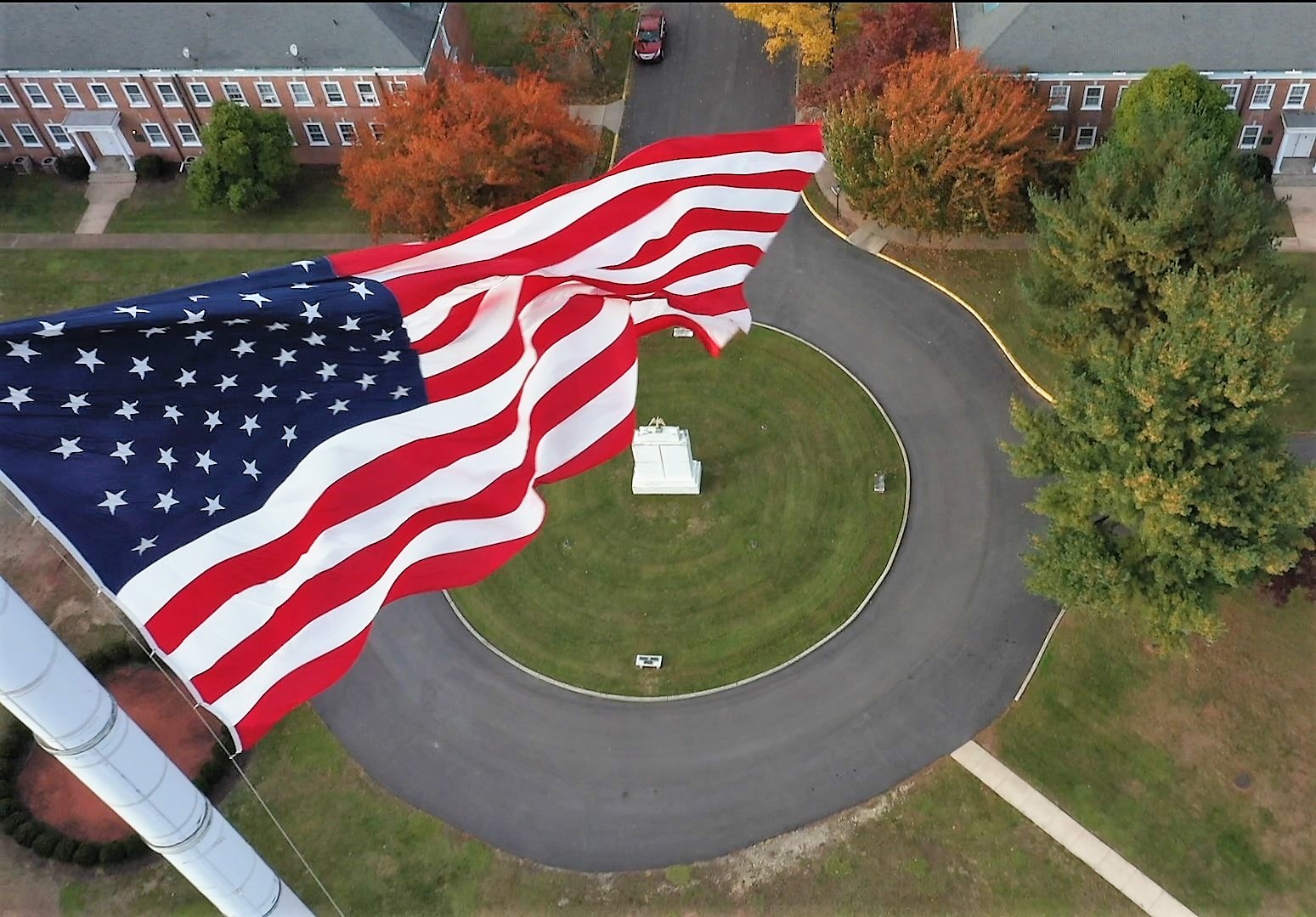
Donate Today
Supporting America’s first principles of freedom is essential to ensure future generations understand and cherish the blessings of liberty. With your donation, we will reach even more young people with the truth of America’s unique past, its promising future, and the liberty for which it stands. Help us prepare the next generation of leaders.
